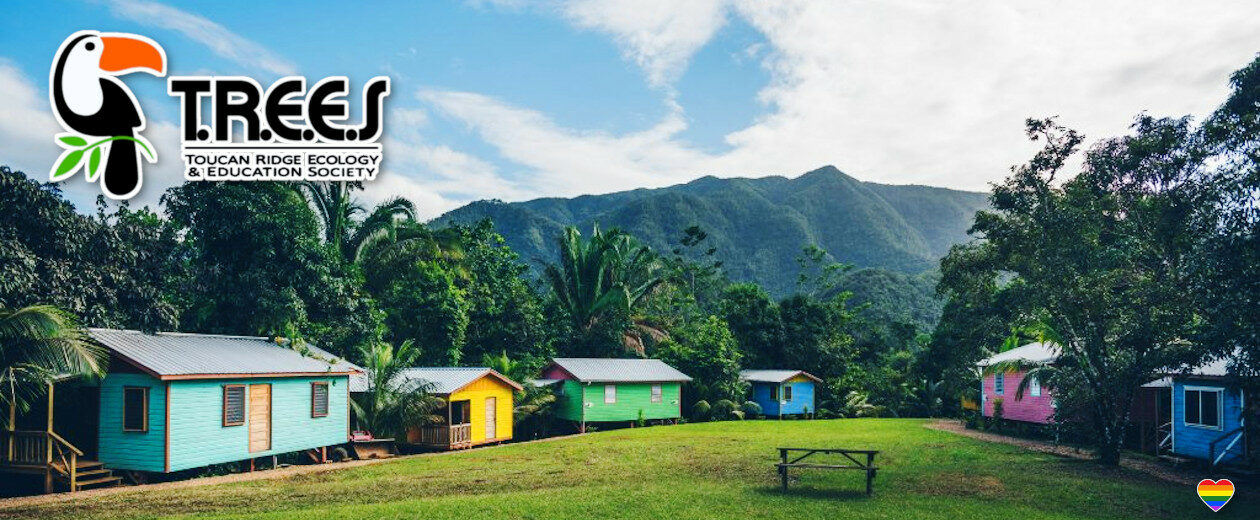- Learn tropical birds by sight and sound in the Maya Mountains.
- Learn and perform a variety of bird surveys that will be most adequate to answer project questions, including: point-counts, callback surveys, transect lines, bird behaviour observational techniques, etc.
- Provide assistance at the T.R.E.E.S banding station; help with the implementation of the banding station, setting-up nets, respecting banding protocols, and bird identification using Pyle. Depending on comfort level of student they may or may not extract birds from nets.
- Possibility of learning bird recording techniques.
- Help in establishing a more complete birds of T.R.E.E.S audio CD.
- Work with T.R.E.E.S researchers, international collaborators, and other interns on the development of protocol design.
- Implement protocols in the field using the help of T.R.E.E.S staff and tutors to find the best places to set-up monitoring plots.
- Be trained on use of GPS to navigate to and mark point count locations.
- Share knowledge with locals and with other fields.
- Learn to enter data in a systematic manner and compile it into a scientific report with introduction and literature review, methods, results (including basic statistical analysis), and discussion using peer-reviewed scientific articles.
- Complete a short 4-5 page summary report that will help to establish future research protocols.
- Depending on involvement in project, may have opportunity to collaborate on future publications
Desired Qualifications
Previous experience working with birds, by sight and sound.
- Knowledge of birds of Central America by sight and sound an asset.
- Knowledge of bird monitoring techniques, point-counts, callbacks, behavioural observations, etc.
- Familiar with bird banding techniques an asset.
- Be physically fit (spend long hours in the field under often difficult conditions).
- Experience with wildlife recording techniques an asset.
- Experience using Microsoft Office Suite and sound recording software; experience using statistical analysis software an asset.
- Flexible easy-going attitude.
Physical Requirements and Work Conditions
Ability to tolerate high temperature and high humidity
- Ability to work in environments where exposure to spiky plants, toxic vines, scorpions, spiders, ticks and biting flies is common. In addition, it is the jungle; venemous snakes are uncommon but present.
- Ability to live in remote conditions away from electronic ammenities
- Possible indoor work is performed in a typical office setting.
- Ability to lift, carry, and position objects weighing up to 30 pounds.
Benefits
Gain a working knowledge of bird monitoring methods.
- Learn Central American birds by sight and sound.
- Learn bird banding techniques.
- Work with ornithologists in a professional setting.
- Opportunity to attend personal/professional development days with local experts.
- Opportunity to live in and enjoy the scenery, wildlife, and cultural resources of a beautiful country in Central America.
- Opportunities to work with other interns, guides and locals from diverse backgrounds that share a common interest in preserving and protecting our natural lands.
Terms
Multiple positions available
- No application deadline
- Start-date: Mid-January 2015 (but flexible); after first internship, positions available year-round for continuing the monitoring projects.
- Length of position: minimum 6 weeks; longer is preferable.
- Schedule: 30 hours per week, Monday–Friday.
Fees
Fees for internships for international students are $25 US/day. This includes lodging and use of all facilities at the T.R.E.E.S Hosting Center, training on methodologies by Ecorana biologists and local T.R.E.E.S professionals in their field of study, as well as mentorship from Ecorana tutors for the duration of the intended internship. International students must have international travel medical insurance during their stay in Belize. At the discretion of the T.R.E.E.S managers, local Belizean students (especially those not staying on site) can have fees reduced or exchanged for work. All interns (international and local) are required to pay for transportation to/from the site and their food while on site (cooking facilities provided).
To Apply
Please email your resume and a thoughtful cover letter to: info@ecorana.ca (international students) OR info@treesociety.org
Please indicate the position title in your email subject line. No phone calls please.
